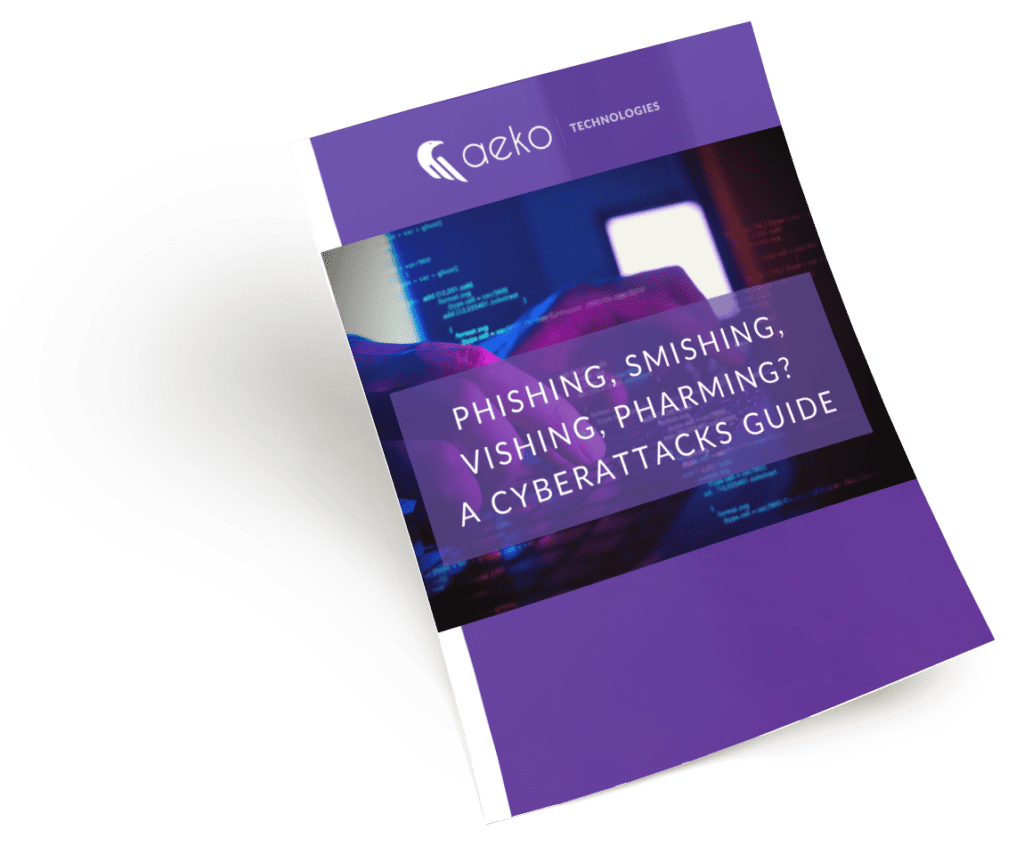There are many reasons why you might want to change IT support. Maybe you’re outgrowing their services or are currently unhappy with their response time. On the other hand, maybe you’ve never used a managed service provider (MSP) before and want to know the benefits, onboarding process and how to find a good one. This guide can help you make good choices.
What’s an MSP?
An MSP, or managed service provider, is an IT company that partners with your company on everything to do with your business data — your servers, computers, infrastructure, security, etc. Much like different flavors of ice cream, some MSPs are better than others, so it’s good to know what to look for and make your own decision.
Here are some steps to finding the right IT support provider for your business.
Create a Checklist
- Create a checklist of the services you might want and the qualities you are looking for in an IT partner. Download our free checklist to get started.
- Look at the websites of companies you are considering to be your MSP partner. Are they professional and up to date? Are most of the links working? Though you’re not in the market for a website design company, you want to make sure that the MSP you hire will be professional and care as much for your business as theirs.
- Is it local? Somewhat local or, God forbid, thousands of miles away? For those times when you need immediate attention for your system, it’s best to choose local IT support. The companies that work in your area and live there, too, have a vested interest in your success.
- Are employees and their photos on the website? Are they happy? Transparency is important and knowing that the company cares enough to show you who will be working on your business gives you a measure of confidence in the company itself. It may also give you an idea of the qualifications and size of the staff. Do they have enough people and depth of experience to meet your needs as you grow?
Once you’ve narrowed down your potential candidates, contact companies for an initial conversation. It can be difficult to know the right questions to ask, so we list a few below to get you started.
Ultimately, the most important thing is you feel like the IT provider understands your business and will partner with you in its success.
Ask About Their Experience and Technical Knowledge
You want an IT partner with a proven ability to work with clients, and who has the technical knowledge and experience your company needs. Here are some great questions to help you screen potential providers. Ask each candidate:
- What services or products does your business provide? Describe your company and give us a summary of your services, skills, people and knowledge.
- What relevant certifications or partnerships support your company’s ability to successfully deliver service to us? (For example, are they certified Microsoft partners with relevant certifications?)
- What is your company’s relevant experience working with companies similar to ours?
Seek Out References and Experiences With Similar Businesses
There are two primary objectives to accomplish in this area: Will they provide those references, and what percentage will be positive ones?
Ask each IT partner candidate to provide client references that have the following information:
- Name of company
- Address
- Size (Is it a like-sized location and is that pertinent?)
- Industry
- Length of relationship
- Reference contact information
Have One-on-One Meetings
Comparing costs will help you narrow your choices when you change IT companies. You probably won’t be able to compare companies’ service for service, but this list of questions can help you understand the candidates’ pricing structures.
- What is your professional fees approach and pricing structure? Is it an all-in-one?
- Does the price depend on the size and complexity of our company?
- What about the contract price? Is there a minimum contract price? Is there a term for the contract?
- Do you have or have you had clients of our size and complexity?
- Knowing our size and complexity, what can we expect your end cost to be annually (with out-of-scope costs factored in)?
- Include a description of available out-of-scope services and related pricing.
- With respect to your managed agreements, what specifically falls under its scope and what does not?
Change IT Support: Compare Associated Fees
Based on the info you receive from these questions combined with the answers you get from the references, choose a few IT companies to interview. During the interview, dive deeper into at least three of the following categories:
1. Strategic Planning Services
An MSP can help you plan your organization’s short-term tech goals as well as your long-term ones. That’s how an MSP becomes a valuable partner that enables the best growth, productivity and profitability for your company.
Each potential provider should be able to provide two things:
- How their company’s ability can lead to strategic IT roadmap development and executive-level planning discussions for your company. Ask them for around five or so examples, references and tools used.
- How their company’s ability can lead to budget planning discussions. Have them provide typical tools, reports and facilitation aids.
2. Client Relationships and Fit
An MSP who gets you and your company is the ideal situation. It’s best if they can relate to you and communicate well. They need to hear you and what you’d like to accomplish when you change IT support companies.
Ask them to:
- Tell you what the company’s account management philosophy and approach is and how it delivers exceptional service to clients.
- Provide profiles of the key client engagement staff and their relevant experience.
- Tell you about how good their client relations are and what would help to make them better.
- Discuss their company’s service commitments and values.
- Talk about how employees are supported in growing their careers and in ongoing education.
- Ask what they do to retain great employees and the average tenure of their non-executive employees.
3. Metrics and Service Philosophy
Get specific numbers and concrete examples to verify their answers. Request information and documentation in these types of areas:
- How they respond when they have not met a service-level agreement.
- A detailed description of the company’s help desk support and staff. Can they support call volumes of 40-55 trouble tickets per month?
- Service-level agreement standards and metrics.
- Level of success meeting service-level agreements. Provide examples.
- A description of three client-related service areas that need improvement.
4. Security
How does this candidate handle security? Don’t allow them to tell you in general terms. Find out:
- If, within the last year, any of their clients were victims of criminal attacks and lost business data because of it.
- If their company provides security training to clients as well as their own employees and what training tools/sources are used.
- Can they improve their current security? If they say no, red flag that candidate and show them the door. There is always room for improved security.
- How they store client passwords and other sensitive information.
- If they require MFA (multi-factor authentication) on sign-ins for all of their employees.
- Do they complete background or other security checks before hiring a new employee?
- How their company handles a cyber attack or breach. Is there a response plan that is taught and simulated so that everyone knows exactly what to do? Have they helped clients build customized versions of these plans in the past?
- Do they provide or assist in helping their clients create a disaster recovery plan?
Aeko Technologies Makes Changing IT Providers Simple
The most difficult part of switching managed IT service providers is choosing the correct one. From there, the partner should do everything possible to make the transition seamless for your company and staff.
At Aeko, we recognize every company is different. We’re always working to improve how our clients leverage technology to boost their business. The first few months are a learning process and can be a little bumpy, but we’re in it together and fully invested in the success of our client.If you want to learn more about choosing the right IT support company to suit your needs or have any burning questions related to IT, contact us or book a meeting.
Are you aware of the most common cyberattack methods?
Did you know there are over 3.4 billion phishing emails sent every day? Phishing and other cybercriminal behavior are a lot more common than you’d think.
Our free “Phishing, Smishing, Vishing, Pharming? A Cyberattacks Guide” will inform you about cyberattack methods and give you the latest in data security tips.


